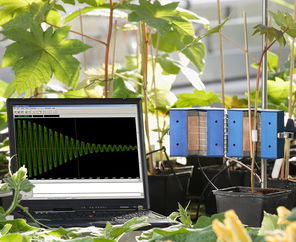Forschungszentrum Jülich

As one of the largest research centres in Europe, Forschungszentrum Jülich conducts basic research and develops key technologies in the areas of health, energy and the environment, as well as information technology.
Energy and climate research
A number of institutes at Forschungszentrum Jülich are working actively towards a more sustainable future. They investigate new and innovative energy conversion technologies ranging from photovoltaics to fuel cells, and study nuclear fusion as well as new coal and gas power plant designs. In terms of climate research, Forschungszentrum Jülich focuses its investigation on the atmosphere as well as the chemistry and dynamics of anthropogenic and natural trace gases. The centre's supercomputers also give scientists an opportunity to model climate systems.
Ideas from within and beyond
Beyond its qualified staff and excellent scientific facilities Forschungszentrum Jülich's success hinges on the cooperation of its researchers. Its facilities are used by other research institutes in Germany and beyond by scientists from around the world. Students and young researchers are given the opportunity to take advantage of the scientific facilities, while contributing to the exchange of ideas on campus. The centre also cooperates with more than 200 national and international industry partners. Furthermore, Jülich is involved in large-scale environmental research projects: TERENO observes changes in four climatic regions from the North German Plain to the Alps. And the collaborative Bioeconomy Science Center is aimed at a sustainable approach to bioeconomy based on renewable raw materials.





